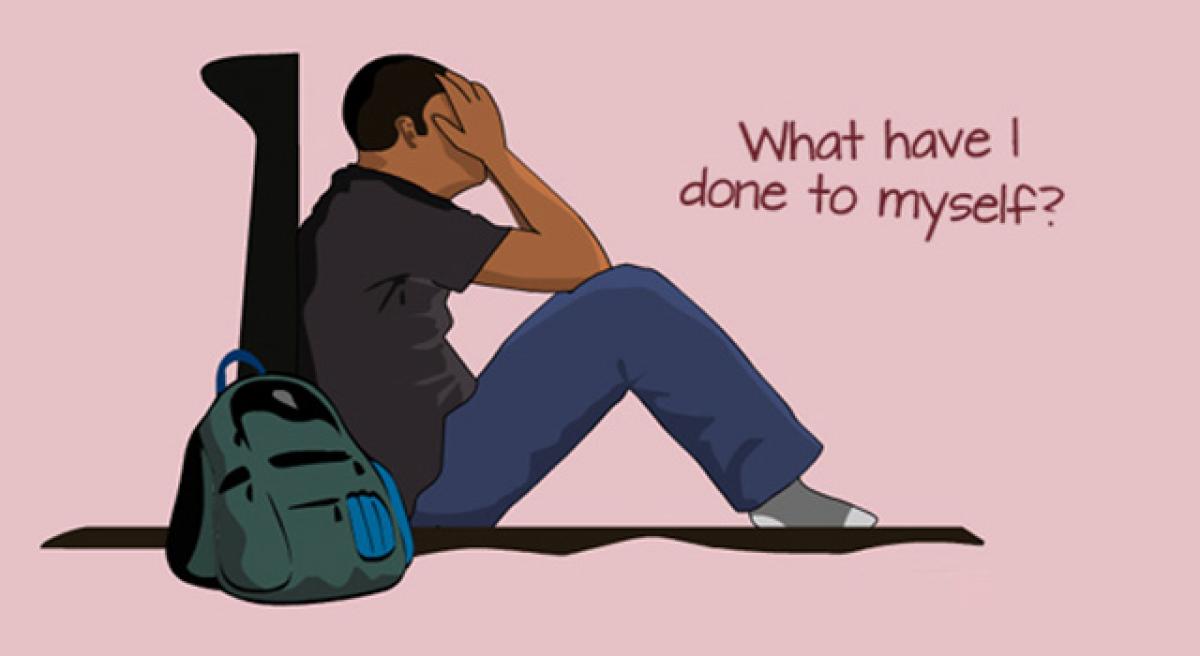Live
- MyVoice: Views of our readers 5th July 2024
- Ravuri Bharadwaja’s legacy lives on
- Learning from others proved impactful
- Restore Dignity, Decorum of Legislative Bodies
- Ten Arrested in Dacoity Case
- Egypt's new govt holds first meeting with focus on resolving power outage
- Chinese geologists unearth novel minerals at world's largest rare-earth mine
- NIA submits chargesheet in 2022 Bengal blast case
- Singapore authority seizes more than $6 million worth of vapes
- Slovak, Polish Presidents hail ties, discuss NATO Summit
Just In

The private sector however is replete with such centres, and many even offer in-house care and rehab facilities at the hands of de-addiction specialists, but this is a high-ticket treatment, and can last from 30 to 90 days or beyond depending on the magnitude of distress.
With the State government tightening its grip on a major ethical crisis that emerged in the form of drug addiction, citizenry of cohorts is under the sceptical lens as the affected begin taking stock of their senses. Experts from verticals voice the ill aspects of drug and substance abuse, and how parents, students and social entities can stop it at its feet.
From sporadic to copious use, students to celebrities, drugs have snuck into areas unexpected, often telling helpless and horrific tales. Who do you blame? The child’s affluent pocket money, the delinquent parents or the spoilt social influence? Many addicts often undergo specialised treatment at de-addiction centres. But here’s the catch.
“There is a serious dearth of de-addiction centres at government hospitals,” says Mujtaba Hasan Askari, social activist and president of specialised healthcare NGO, Helping Hand Foundation. “Most of the government hospitals have a Psychiatry department; the State government can contrive to institute de-addiction facilities under this department. Currently, the only rehab centre available in the city is the National Institute of Mental Health at Erragadda, which treats only mentally challenged or alcohol addicts,” he adds.
The private sector however is replete with such centres, and many even offer in-house care and rehab facilities at the hands of de-addiction specialists, but this is a high-ticket treatment, and can last from 30 to 90 days or beyond depending on the magnitude of distress. Dr PVK Chowdary, a de-addiction expert and Psychiatrist with Phoenix Foundation believes that the number of cases for de-addiction “has slightly increased”since the news of drugs erupted in July.
Having treated people from a wide age demographic (16-67 years), DrChowdary exhorts that “more than the seriousness of addiction, the willingness to quit is important while treating drug addicts”. He recollects treating a 14-year-old boy (name reserved)from a ‘middle class’ family who became an addict, and reportedly visited Goa to buy drugs for himself. The “addicted teenager gradually began to sell these drugs too”.
Apparently, the disproportionate amount of pocket money (Rs 10,000/month) he received from his father was used to buy these substances of abuse. After undergoing an effective rehab and counselling at a private centre (name not disclosed), the boy now nearly 17, “has decided to start a de-addiction centre of his own to help people with similar addiction lineage.”
While rehabilitation is possible for most cases, Psychiatrist and therapist Dr K Jyothirmayi warns that prolonged addiction may damage nerves. “While the physical damage may not readily manifest signs, the drug addict may be undergoing memory disruption,” she warns and adds, “Drugs activate pleasure centres, and its consumers tend to retrieve the same feeling again.”
“If not treated in time, patients may even go into coma,” she adds. Besides mental agony and deteriorating social life, “individuals who reprise drugs are at the risk of heart attack. Alcohol and drugs including cocaine among others, cause blood vessels to constrict disruptions in blood flow, even to the point of inducing a heart attack,” says clinical cardio electrophysiologist Dr Aslam Mohammed Khan.
Does that call for educating the society on drug hazards?“Yes, and such awareness must begin at school level,” says social counsellor ArshiAyub. In her opinion,“It is important for schools to have student counsellors that guide these moulding minds on social ethos, andprevent them for societal evils like drug addiction.”
When asked why students primarily get into drug addiction, she observes that love deprived and depressed children easily slip into this quicksand. “Many parents fail to realise that besides education their children have to be givenan occasional adrenaline of ‘self-esteem’.”
“When children are loved, recognised for whoever and whatever they are, and rightly acknowledged by their parents, there will be no void for drugs or other forms of illicit pleasures to plug into.”
“Many parents fail to realise children, albeit casually, if labelled as lazy or less intelligent, are deprived of love and care, they develop a social stigmaand spiral down in isolation”, a factor considered to be cause of most drug addiction cases in this age group.
According to National Students Union of India National Secretary, Amir Javeed, all forms of drug consumption must be condemned, as it leads to “catastrophic physical and emotional effects, besides being an impediment to their academic and professional aspirations”.
He advised the students to “keep away from any signs leading to drugs and alcohol”. The NSUI secretary also visited schools and colleges in the city to bring awareness and has created a social group called ‘Say No To Drugs’to create awareness about substance and drug abuse.
US-based Hyderabadi Psychiatrist Dr Khutbuddin believes “depression and the feeling of self-worthlessnessare the major cause of people resorting for drugs”. “There is no better medicine than social care and family love,” he adds.
“If one is concerned about bringing about positive societal change, now might be the best time. More importantly, parents speaking up openly to children about drugs and its ill effects can substantially thwart its embrace among the younger lot,” adds Arshi.

© 2024 Hyderabad Media House Limited/The Hans India. All rights reserved. Powered by hocalwire.com







